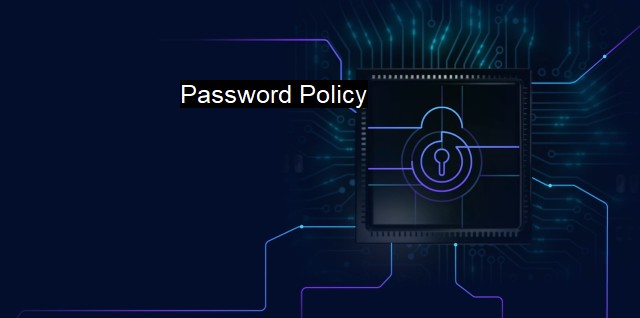What is Password Policy?
Fortifying Cybersecurity: The Importance of Robust Password Policies and Antivirus Integration
A password policy can be described as a set of rules designed to boost computer security by uplifting users to employ potent, secure passwords and apply them properly. The use of strong passwords and their management is a linchpin in cybersecurity defense strategy since it is an initial line of resistance against intrusions.In the current digital world, every single day, we interact with multiple electronic devices, internet-based accounts, and services that usually require accounts with passwords for access control. All too often, their security is taken for granted; threats are growing at an accelerated pace. As such, poor password management can lead to unauthorized access and potentially disastrous consequences, making password policy more vital.
A password policy is one of the principal defenses against potential threats and security breaches. It often prescribes that users create and routinely change multifaceted, complex passwords. A solid password policy places an emphasis on variation and complexity, insisting on a combination of numeric, uppercase, lowercase, and special characters. Also, it usually requires lengthy passwords since they are much harder to crack than shorter counterparts.
Regular password changes are also imperative. By implementing an effective password policy that necessitates periodic password modifications, users are protected against attacks that employ previously leaked or used passwords. Consequently, even if an attacker can acquire a password, they would not be able to use it for long periods or multiple times.
Password policy typically forbids password sharing and reuse which prevents a domino effect in the event of a breach. If hackers manage to get a password, they could potentially try this password for other services used by the victim, and if the password is reused, the situation quickly escalates. As such, the policy could use digital controls to prevent or highlight password reuse during the creation of a new password.
As vital as robust password creation is, the storage and transmission of passwords is equally as important. Therefore, most policies discourage password sharing via insecure mediums such as text messages or emails, and encourage the use of secure, known channels that employ end-to-end encryption.
Though it's crucial, the password policy doesn't provide complete protection, and layering it with other tools creates an impenetrable cybersecurity fortress. Integration with antivirus software is one such tool. Antivirus software is critical in monitoring and protecting your peripheral and electronic devices from any internal and external threats. These cybersecurity threats can range from worms to viruses, spyware to ransomware.
With robust password policies and advanced antivirus software, users are granted enhanced security against unauthorized and bypassing login access attempts to their accounts or systems and from malicious software. Antivirus software use sandboxing, real-time scanning, and heuristic analysis methods to detect, prevent, isolate, and remove malicious activities, programs, or files which may otherwise manipulate weaknesses in passwords or password management.
By heightening password complexity, forbidding reckless password sharing, enforcing change regularity, and blending it with seamless integration of antivirus softwares, password policies form a formidable foundation of a holistic cybersecurity strategy – thereby fortifying walls against cyber attacks.
Understanding and implementing an adequate password policy is critically essential — they are a robust first line of perimeter safety in any cybersecurity defense strategy when paired with antivirus software. With the inexorable uptick of digitalization, cyber threats remain a persistent, ominous reality. If the smallest of security measures like robust password policies are brushed aside, cyber-security can easily be compromised, thus opening the floodgates for unauthorized access and leading to enormous potential for damage.

Password Policy FAQs
What is a password policy?
A password policy is a set of rules and guidelines that dictate how users create and manage their passwords. These policies help ensure that passwords are strong and secure and reduce the risk of cybersecurity breaches. Password policies often include requirements for password length, complexity, and expiration.Why is a password policy important for cybersecurity?
A password policy is crucial for cybersecurity because weak passwords are one of the most common ways that cybercriminals gain unauthorized access to systems and data. By enforcing strong password policies, organizations can significantly reduce the risk of password-related threats such as brute-force attacks and password guessing.What are some common elements of a strong password policy?
A strong password policy should include elements such as minimum password length, the use of special characters, numbers, or symbols, the prohibition of dictionary words or common phrases, and password expiration or mandatory password changes. Other considerations may include prohibiting reuse of old passwords, limiting failed login attempts, and implementing multi-factor authentication for higher security.How can organizations enforce their password policies?
Organizations can enforce their password policies through several means. First, they can use software tools to automatically check the strength of user passwords and require changes if passwords do not meet the policy requirements. Additionally, organizations can provide training and education to employees to help them understand the importance of strong passwords and the risks associated with weak ones. Finally, organizations can use access controls to restrict access to systems and data based on the strength of user passwords.| | A | | | B | | | C | | | D | | | E | | | F | | | G | | | H | | | I | | | J | | | K | | | L | | | M | |
| | N | | | O | | | P | | | Q | | | R | | | S | | | T | | | U | | | V | | | W | | | X | | | Y | | | Z | |
| | 1 | | | 2 | | | 3 | | | 4 | | | 7 | | | 8 | | |||||||